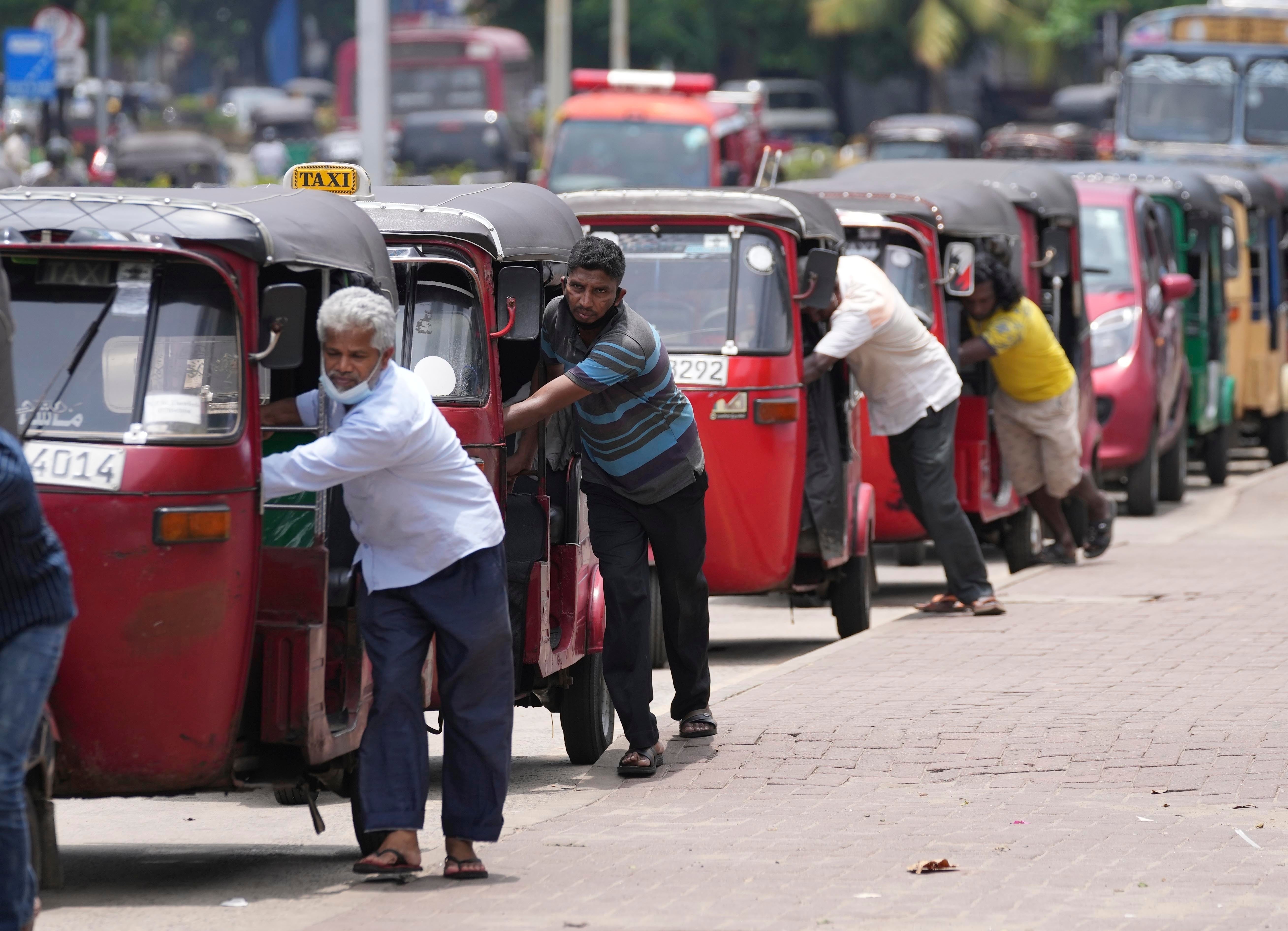US company signs agreement to enter retail fuel market in crisis-hit Sri Lanka
A U.S. petroleum company has signed an agreement with Sri Lanka allowing it to import and sell fuel in the country as the Indian Ocean nation grapples with an economic and energy crisis

Your support helps us to tell the story
From reproductive rights to climate change to Big Tech, The Independent is on the ground when the story is developing. Whether it's investigating the financials of Elon Musk's pro-Trump PAC or producing our latest documentary, 'The A Word', which shines a light on the American women fighting for reproductive rights, we know how important it is to parse out the facts from the messaging.
At such a critical moment in US history, we need reporters on the ground. Your donation allows us to keep sending journalists to speak to both sides of the story.
The Independent is trusted by Americans across the entire political spectrum. And unlike many other quality news outlets, we choose not to lock Americans out of our reporting and analysis with paywalls. We believe quality journalism should be available to everyone, paid for by those who can afford it.
Your support makes all the difference.A U.S. petroleum company signed an agreement with Sri Lanka on Thursday allowing it to import and sell fuel in the country, less than a month after Chinese petroleum giant Sinopec also acquired rights to enter the retail market, as the Indian Ocean nation grapples with an economic and energy crisis.
RM Parks Inc. signed the agreement in collaboration with Shell and will be able to import, distribute and sell petroleum products for 20 years, the Power and Energy Ministry said.
It can sell petroleum products through 150 fuel stations currently operated by state-run Ceylon Petroleum Corp., and also invest in 50 new fuel stations, the ministry said.
The agreement will help "address the foreign exchange crisis in Sri Lanka and ensure a steady supply of fuel,” the president's office said in a statement.
RM Parks says it has supplied a variety of fuel brands to stations in California for almost 50 years.
Sri Lankan authorities have opened the retail fuel market to more foreign companies in an effort to solve the energy crisis as the country’s depleted foreign reserves hinder imports of oil.
The foreign companies are required to use their own funds to purchase fuel, without depending on Sri Lankan banks for foreign exchange.
Sri Lankan authorities have already granted approval to three foreign companies to enter the retail fuel market, and two have signed contracts. Australia’s United Petroleum has yet to finalize an agreement.
Sinopec signed a contract on May 22 and will be able to begin operations in Sri Lanka within 45 days after the issuance of its license.
An Indian oil company was already operating in Sri Lanka.
When the economic crisis hit Sri Lanka last year, the government didn't have enough foreign currency to import fuel, triggering severe shortages. Sri Lankans are still allotted limited amounts of fuel, which is distributed using a QR code system.
The economic crisis also resulted in severe shortages of essentials such as medicines, fuel, cooking gas and food, leading to angry protests that forced then-President Gotabya Rajapaksa to flee the country and resign last summer.
Sri Lanka defaulted on repayment of its foreign debts and sought the support of international partners and organizations to resolve the crisis.
The International Monetary Fund approved a nearly $3 billion rescue program in March which will run for four years. Sri Lanka’s foreign debt exceeds $51 billion, of which $28 billion must be repaid by 2027. Sri Lanka has started negotiations with creditors on debt restructuring.
Last week, the IMF said Sri Lanka is showing signs of economic improvement, but its recovery still faces challenges. It said the economy is expected to resume growing in 2024 after contracting 3% this year if the country successfully implements promised economic reforms.